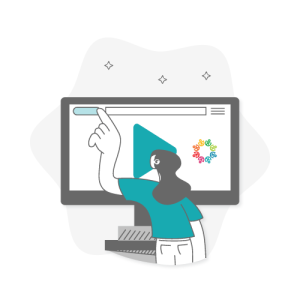No – polyamory is the term used to refer to individuals in relationships with more than one person. The practice has been around for centuries, and within many ancient civilisations, it was considered the norm within society. Although marriages were only permitted between two individuals in ancient Greece or Rome, many would take multiple concubines and partners with members of the same or opposite sex while still married. In the Ottoman and Persian empires, it was commonplace for the Sultan or Emirs to take multiple wives, all cohabitating in areas known as harems. In the 1800s, polyamorous encounters have even endorsed by governments. In 1879, Paraguay was involved in a six-year-long battle with its neighbours Brazil, Argentina and Uruguay, known as the War of the Triple Alliance. After the war, Paraguay had lost over 300 thousand men and, as a result, had a larger population of women than men. All those surviving men, women, and priests were encouraged to take multiple partners to help repopulate the country.

- 20% (forty-six) of all countries around the world allow polygamy
- 2% (four) of all the countries that allow polygamy only permit it when the marriage relates to individuals that identify as Muslim
- 54% are from African countries, 43% from Asian countries, and only one (or 2%) are from Oceania
- None of the countries that permit polygamy also recognise same-sex unions, partnerships or marriages
- The remaining 183 countries (78%) classify polygamy as a crime, in which individuals would likely be prosecuted under the law
- The forty-size countries that allow polygamy are Afghanistan, Algeria, Bahrain, Bangladesh, Bhutan, Brunei Darussalam, Cameroon, the Central African Republic, Chad, the Republic of the Congo, Djibouti, Egypt, Gabon, the Gambia, Guinea, Indonesia, the Islamic Republic of Iran, Iraq, Jordan, Kenya, Kuwait, Lebanon, Libya, the Maldives, Mali, Mauritania, Morocco, Nigeria, Oman, Pakistan, Qatar, Sao Tome and Principe, Saudi Arabia, Senegal, the Solomon Islands, Somalia, South Sudan, Sri Lanka, Swaziland, Syria, Tanzania, Togo, Uganda, the United Arab Emirates, Yemen and Zambia
- The four countries that allow polygamy for practising Muslims are India, Malaysia, the Philippines and Singapore
Many countries that legally recognise polygamy are either Islamic countries or have large populations of Muslims, as polygamy still exists in many religions and practices. Sunni and Shia Muslim men can marry up to four wives, subject to strict rules. Mormon, Buddhism, Evangelical Lutherans and Hindu faiths all allow polygamy. However, it is subject to the country where the individuals are located as to whether it is legally recognised. Should any country that currently permits polygamous marriages also recognise same-sex unions, partnerships or marriages, it might be possible for LGBTQ+ individuals to marry in a similar way. If the law were applied without restrictions, then technically, LGBTQ+ individuals would be legally permitted to form polygamous marriages with their multiple partners.
All throuples within the LGBTQ+ community will be polyamory. Polyamorous relationships are typically not illegal; however, these relationships do not have any legal status or protection for the partners. For example, if one partner died, any shared assets would be transferred to the surviving partners. All beneficiaries would be subject to taxes on the assets, which often does not apply between surviving spouses of marriages made up of two people. One question usually asked by many interested in polyamorous relationships relates to love and whether all partners love each other equally. Most throuples would answer in a similar way, that there is a lot of love; however, their love for one another is different. The easiest way is to liken this is to all the people you love or have loved in your life. You will likely love each person but differently. Any feelings for a person might be a combination of various factors. These factors might include attraction, individual personalities, specific characteristics, family history, and support they give or have given. So, with throuples, each person loves each partner; most likely for different reasons.
Though there are no official statistics or estimates regarding the number of throuples globally, according to the media and specialist websites and smartphone applications, these types of relationships are growing in popularity amongst heterosexual and LGBTQ+ individuals. Many services and apps are being developed and launched to allow like-minded individuals to meet and help them form new relationships. Most have been designed to meet the growing demand and include:In a world full of uncertainty, groups that love one another and are not hurting anyone cannot be ranked low regarding morality. Though these relationships may not suit everyone, they have been around and survived for centuries. As we evolve, society will hopefully become more accepting and respectful of people’s choices and lifestyles, especially when it does not impact their daily lives.
Ultimately, if everyone is consenting and of legal age, it does not matter who you love, just that you love































